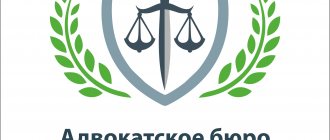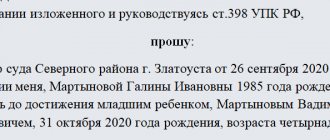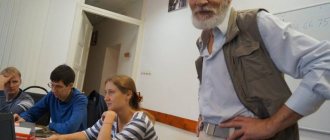The institution, in accordance with the Charter of the FAU "Glavgosexpertiza of Russia", conducts a forensic examination on issues related to the goals and subject of activity, which is understood as a procedural action provided for by the legislation of the Russian Federation on legal proceedings, including conducting research and giving an expert opinion on issues requiring special knowledge in the field of architectural and construction design, engineering surveys and cost estimates.
Employees of the Institution have special knowledge that allows them to be used when conducting (producing) forensic examinations in this area.
On the website you can find an approximate list of questions that correspond to the subject and goals of the activities of the FAU "Glavgosexpertiza of Russia" and which can be put to the experts of the FAU "Glavgosexpertiza of Russia" for conducting (conducting) a forensic examination, as well as an approximate list of questions that do not correspond to the subject and the goals of the activities of the FAU "Glavgosexpertiza of Russia" and which cannot be put before the experts of the FAU "Glavgosexpertiza of Russia" for conducting (producing) a forensic examination.
The grounds for conducting (conducting) a forensic examination are: determinations and decisions of the court, judge, body of inquiry, person conducting the inquiry, investigator or prosecutor.
The procedure for appointing a forensic examination is regulated by Art. 82 of the Arbitration Procedural Code of the Russian Federation, Art. 79 of the Civil Procedure Code of the Russian Federation, Art. 195 of the Criminal Procedure Code of the Russian Federation, Art. 77 of the Code of Administrative Proceedings of the Russian Federation.
Types of forensic examination
One of the most important types of forensic research is traditional forensic examination. This is a class of forensic examinations performed using special knowledge and techniques based on the provisions of forensic technology. Forensic examinations are divided into types:
- forensic traceability or so-called examination of traces. Sometimes another type is separately identified for solving crimes - fingerprint examination;
- examination of firearms, as well as ammunition and traces of a shot (also known as forensic ballistic studies);
- examination of bladed weapons;
- handwriting examinations;
- technical examination of documents;
- portrait examinations;
- phototechnical examinations.
Often, forensic examinations are also called author-editing studies, the main task of which is to identify, through the study of various documents, their authors.
Another class of forensic examinations is the study of substances, materials, and products. These include the following analysis:
- examination of fibers, fibrous materials and products made from them;
- fuels and lubricants and petroleum products;
- paints and coatings;
- metals, alloys and products made from them;
- drugs;
- food products;
- plastics and polymeric materials;
- ceramics, glass and products made from them, etc.
In addition, certain types of forensic research are:
- forensic (people, corpses, physical evidence);
- forensic psychiatric examinations;
- forensic-autotechnical examinations;
- technical expertise;
- construction expertise.
Process of receiving a service
A forensic examination is considered ordered from the day the relevant ruling or resolution is issued.
Prior to the appointment of a forensic examination, a judicial body, an inquiry or preliminary investigation body, or a party in civil or arbitration proceedings sends a request to the Institution. The request is drawn up in any form, but must contain specific questions posed to the expert. In order to determine the cost, timing of the forensic examination, and determine the required qualifications of experts, it is necessary to submit documents requiring assessment (objects of research) or information containing information about the name and volume of sections of the design and estimate documentation (object of research) to the request.
Based on the results of the review, the Institution sends to the requesting body or person a response to the request with information about the possibility/impossibility of conducting (conducting) a forensic examination by the Institution, the timing of conducting (producing) a forensic examination, last name, first name, patronymic, qualifications of experts, procedure (method) for submitting materials for conducting (production) of a forensic examination, as well as the cost of conducting (production) of a forensic examination, determined in accordance with the local acts of the Institution.
When the Institution makes a positive decision on the possibility of conducting a forensic examination, if a request to conduct a forensic examination is sent by an inquiry or preliminary investigation body, an offer is attached to the response to the request, the form of which is presented on the website for review.
Please note that the preparation and submission of the offer is carried out by the Institution.
The body or person who appointed the forensic examination provides the Institution with the basis for conducting (conducting) the forensic examination (the original of the determination or resolution), materials that are the object of the study, and other documents necessary for conducting the research and giving an expert opinion. Materials/other documents can be submitted on paper (by Russian Post or courier service) or in electronic form.
The most preferable method is to submit documents in electronic form in order to reduce the time required for their consideration during the conduct of a forensic examination.
Objectives of Forensic Research
Among the tasks of forensic examination are the following:
- identification, establishing individual characteristics and identities;
- diagnostic, aimed at establishing the nature of an object, its purpose, use, change, etc.;
- classification, defining characteristics (properties) of the object under study and assigning it to one or another class.
The experienced specialists of the expert center are able to cope with even the most complex task.
Criteria for classification of examinations
Almost any phenomenon can be classified in different ways depending on one aspect or another. In this case, we are dealing with a classification prescribed by the code and a classification determined by the specifics of the necessary skills and abilities.
The division of such procedures is based on the following conditions:
- Location.
- Time spending.
- Analyzed item.
- Volume.
- The person appointing the conduct.
- Mandatory conduct.
- Number of experts.
- Reliability of the results obtained.
- The nature of special knowledge.
Location
It can be carried out both in a state expert institution and in a non-state one, as well as outside the organization by an appropriate specialist.
As a rule, preliminary investigation authorities and investigators in the vast majority of cases turn to state-funded institutions. However, in cases where the required specialist is not available, during periods of heavy workload (the procedure is delayed for several months), preference when choosing an expert may be given to a top specialist in a certain field of knowledge. For example, linguistic analysis is carried out by researchers from philological faculties of higher educational institutions.
Damage caused to organizations and citizens can only be calculated by a qualified appraiser.
Time spending
Part 4 art. 195 of the Code of Criminal Procedure of the Russian Federation defines such a division criterion as the time spent before the initiation of a criminal case, and after, already during the preliminary investigation or directly during the consideration of the case by the court.
In most cases, this occurs as part of pre-trial proceedings.
In this case, without an appropriate conclusion, there will be no basis for initiating a criminal case; it is assigned the main role in the entire process of proof. This is relevant when investigating cases of murder, beatings, etc.
Analyzed item
Depending on the proposed subject, there are homogeneous ones, carried out by researchers of the same specialty on the same property of the subject, and complex ones, carried out by expert technicians of different directions.
Complex work is carried out, as a rule, by a commission. When conducting a complex analysis, there is a need to involve knowledge from different areas of scientific knowledge or the same thing, but with different scientific directions.
Each performer can consider only those objects that fall within his competence and apply only known methods. But there are also complex studies carried out by only one person, knowledgeable in all the necessary areas of knowledge.
For example, construction and technical research is conditioned by the participation in it of both persons knowledgeable in the construction field and persons who know the properties of materials used in the construction of buildings.
The work itself can be carried out in stages: at the first stage, a conclusion is drawn about the quality and properties of the materials used, then the correctness of the construction technology used is established, taking into account information about the materials.
Volume
The need to answer questions posed during the preliminary investigation or inquiry, and sometimes by the court, regarding a subject or phenomenon about which participants in criminal proceedings find it difficult to independently obtain an idea, requires the main work of an expert.
If, at the initial direction, the investigation did not have all the evidence, such evidence appeared already at the stage of the final conclusion; if the results obtained are insufficient or the defense lawyer or public prosecutor, the victim or the accused have additional questions, then at their request an additional investigation is ordered.
Person appointing the conduct
This may be an investigator (inquiry officer) in whose proceedings the case under investigation or materials for initiating a case are located. If during the preliminary investigation there was no need for such an appointment, but subsequently the need arose, then the person making the decision will be the court of first instance.
It should be taken into account that, in accordance with Art. 389.13. Code of Criminal Procedure of the Russian Federation, the appellate court is also granted this right.
Mandatory
The Code clearly states the cases when research is required.
As a rule, the results obtained directly influence the further course of the case, then the proceedings are either terminated due to the lack of corpus delicti, or the act committed is reclassified, or the chosen preventive measure is changed and the appropriate punishment is provided, the accused or defendant is placed in specialized medical institutions. Cases when an examination is mandatory:
– establishing the cause of death;
– definition of harm to health (mild, moderate and severe);
– confirmation of the sanity or insanity of the suspect, accused, as well as determination of the physical condition of the person. Within the framework of such a study, questions about the presence of a sexual disorder (pedophilia) in the suspect or accused during the investigation of relevant crimes are also resolved, and drug addiction is also revealed.
– establishing the mental and physical state of the victim when suspicions arise regarding incorrect perception of circumstances;
– the age of the person brought to criminal liability (when it is not possible to establish this fact otherwise).
According to the logic of the law, all other cases are optional. The investigation of a criminal act may reach a dead end without appropriate explanations from specialists, and then this procedure will become mandatory for the participants in the process.
Number of experts
By decision of the head of the state expert institution, work can be entrusted to either one employee or several.
Even in one area of knowledge, the participation of two or more people is sometimes required. This format of the procedure is determined by one of the principles of evidence – objectivity. An expert, no matter how excellent a specialist he may be, how can a person reflect a subjective point of view in conclusion.
The conclusion is signed by several employees at once, or if there is a dissenting opinion that does not coincide with the opinion of colleagues, a separate reasoned conclusion is drawn up.
Reliability of the results obtained
There are times when the results of the initially carried out procedure, in the opinion of the participants in the process, did not take into account all the evidence, gave rise to doubts, and were not sufficiently reasoned. There are cases when there are suspicions that the expert is interested in the outcome of the case, that he has received some kind of benefit, or that the lack of professionalism of this person has somehow been revealed. There are also two diametrically opposed conclusions regarding the same aspect. In these cases, the procedure is repeated.
It is important to understand the difference between a re-examination and an additional one: it is carried out by another specialist, and the range of questions posed cannot be changed upon a new application.
Nature of specialized knowledge
It all depends on what will be analyzed, a specific thing, a person or a material of natural origin.
Taking into account the constant improvement of methods and equipment, the list of ongoing studies is constantly growing. We will look at the main categories below.
Contents of the court ruling on the appointment of an examination
Article 80 of the Code of Civil Procedure of the Russian Federation.
1. In the ruling on ordering an expert examination, the court shall indicate the name of the court; the date of appointment of the examination and the date no later than which the conclusion must be drawn up and sent by the expert to the court that appointed the examination; names of the parties in the case under consideration; name of the examination; facts for confirmation or refutation of which an examination is appointed; questions posed to the expert; surname, name and patronymic of the expert or the name of the expert institution entrusted with carrying out the examination; materials and documents presented to the expert for comparative research; special conditions for handling them during research, if necessary; name of the party that pays for the examination.
2. The court ruling also states that for giving a knowingly false conclusion, the expert is warned by the court or the head of the forensic institution, if the examination is carried out by a specialist from this institution, about the responsibility provided for by the Criminal Code of the Russian Federation.
Who can conduct the examination
The examination can be carried out in a state or non-state forensic institution. Persons who have special knowledge but are not employees of the expert institution may be involved in the examination (see paragraph 1 of the Resolution of the Plenum of the Supreme Arbitration Court of the Russian Federation dated April 4, 2014 No. 23).
The parties to the trial have the right to request the involvement of persons specified by them as experts or to conduct an examination in a specific expert institution (see paragraph 3 of Article 82 of the Arbitration Procedure Code of the Russian Federation).







